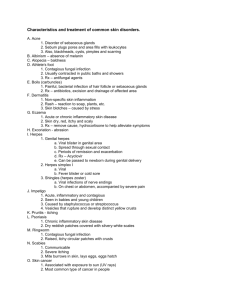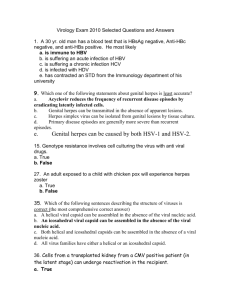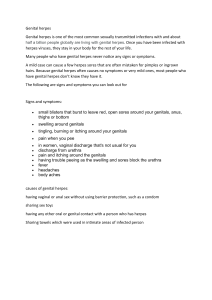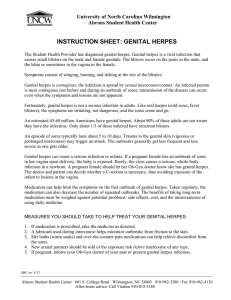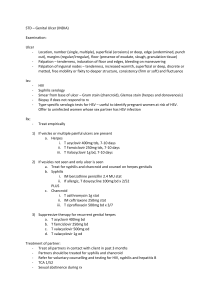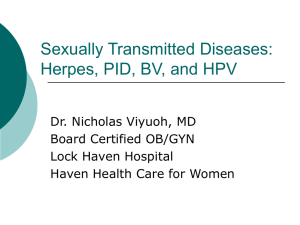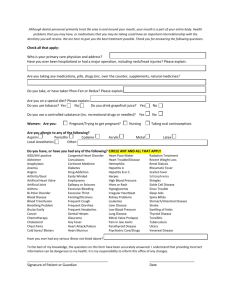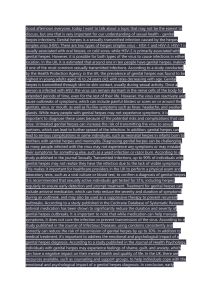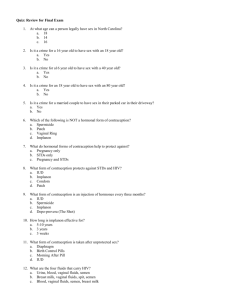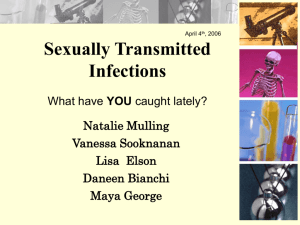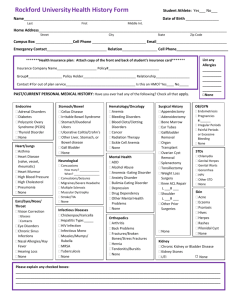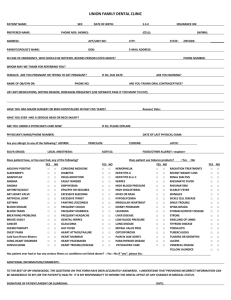Genital Herpes Perceived Severity Scales
advertisement
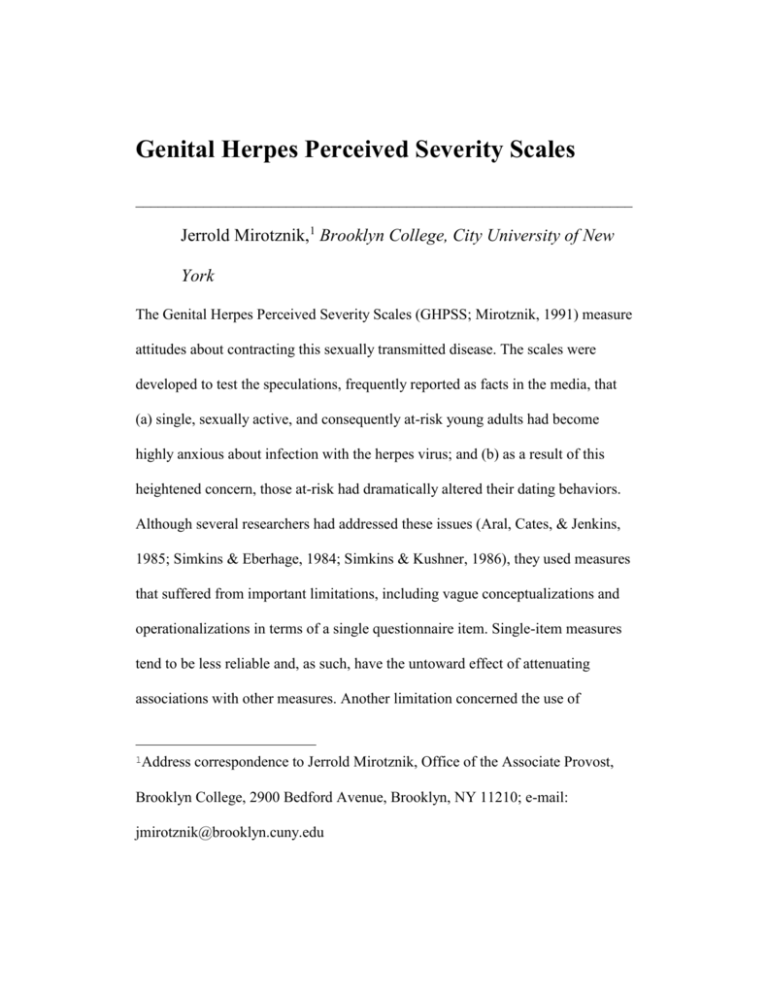
Genital Herpes Perceived Severity Scales __________________________________________________________________ Jerrold Mirotznik,1 Brooklyn College, City University of New York The Genital Herpes Perceived Severity Scales (GHPSS; Mirotznik, 1991) measure attitudes about contracting this sexually transmitted disease. The scales were developed to test the speculations, frequently reported as facts in the media, that (a) single, sexually active, and consequently at-risk young adults had become highly anxious about infection with the herpes virus; and (b) as a result of this heightened concern, those at-risk had dramatically altered their dating behaviors. Although several researchers had addressed these issues (Aral, Cates, & Jenkins, 1985; Simkins & Eberhage, 1984; Simkins & Kushner, 1986), they used measures that suffered from important limitations, including vague conceptualizations and operationalizations in terms of a single questionnaire item. Single-item measures tend to be less reliable and, as such, have the untoward effect of attenuating associations with other measures. Another limitation concerned the use of 1Address correspondence to Jerrold Mirotznik, Office of the Associate Provost, Brooklyn College, 2900 Bedford Avenue, Brooklyn, NY 11210; e-mail: jmirotznik@brooklyn.cuny.edu dichotomous response options. Dichotomous response options fail to capture the variability of reactions to genital herpes. Finally, little evidence was presented regarding these measures' psychometric properties. (See Mirotznik, 1991, for a detailed discussion of these limitations.) The primary theoretical orientation guiding the conceptualization of the GHPSS was the Health Belief Model (HBM; Janz & Becker, 1984). In the HBM it is hypothesized that people are likely to take steps to avoid a particular disease if they perceive that disease as personally threatening. A major component of perceived threat is the degree to which a disease is thought to be severe. Perceived severity, in turn, has been defined not just in terms of a disease's medical/clinical consequences but also its social and psychological effects. Accordingly, the GHPSS were constructed to measure the degree to which people believe that contracting genital herpes would lead to the latter type of consequences. Description Three scales were developed de novo. Each scale was hypothesized to measure a particular social or psychological consequence of infection. To enhance content and face validity, all items were constructed with the help of two clinicians, a sex therapist and a psychologist, both with expertise in treating people with genital herpes. The Fear Scale measures whether subjects are frightened about contracting this disease by determining the degree to which they endorse seven items that characterize herpes and those who contract it in highly negative, stigmatizing terms. Each item has a 6-point Likert-type response format ranging from (1) strongly disagree to (6) strongly agree. The Family Impediment Scale measures the degree to which respondents believe that contracting genital herpes would be a hindrance in establishing a family. It consists of one overall question asking respondents to rate how difficult it would be for a single person with genital herpes to experience each of five family lifecourse events. Each item has a 6-point Likert-type response format ranging from (1) not difficult at all to (6) very difficult. The Emotional Response Scale assesses possible emotional reactions to infection with genital herpes. The scale lists seven emotions. For each emotion, respondents indicate on a 4-point Likert-type format whether they would (1) not react with the emotion or (4) strongly experience the emotion. Additional material pertaining to this scale, including information about format, scoring, reliability, and validity is available in Fisher, Davis, Yarber, and Davis (2010). Fisher, T. D., Davis, C. M., Yarber, W. L., & Davis, S. L. (2010). Handbook of Sexuality-Related Measures. New York: Routledge.
